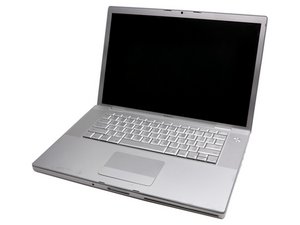The MK6476GSX series drives won't work in your system here as they are SATA II (3.0 Gb/s). Your system can only support SATA I (1.5 Gb/s) drives. Some drives do offer a compatibility jumper to allow one to alter the SATA I/O speed to SATA I. Sadly, I don't see one in this series.
You'll need to find a different drive. I would recommend a drive that offers auto sense technology like this hybrid drive: Seagate Laptop SSHD if we compare the spec sheet for this drive: Laptop SSHD spec sheet we can see it offers backward compatibility with SATA I (1.5 Gb/s) & II (3.0 Gb/s). As reference here's the full Toshiba MK6476GSX spec sheet
I suspect your newer drives are still OK, you'll need to use them in a different system or use an external USB or FireWire case to hold them (and reformat them).
You will likely need to reformat the drives in the FireWire case to get them to work as they may be corrupted. From your other working system see if you can access them via Disk Utility and run Disk First Aid to try to repair them if that fails you'll need to reformat. Its also possible the drive is beyond hope here.
Per your vid - Nope! This is a dead drive the heads have crashed! Time for the drive grave yard.
More often people try to force fit the wrong drive into their system which is why I was stressing this. As I stated to, you had a chance the drive was not going to work "Its also possible the drive is beyond hope here"
One cause of your drive failing can be caused by banging the system while the drive is running. As to why it was running could be for a few different reasons. Beyond the obvious one of banging/dropping it what in use.
Lets say you put the system to sleep mode and then picked the system up if you don't give the system enough time to shut down all of the processes that it was still working on and picked up the system giving it a bit of a thump that could cause the drive to crash.
Another cause here is age or failure to do housekeeping. What happens here is the drive data is not in continuous blocks so the drive needs to work harder than it needs to. Which over time shortens the lifespan of the drive. I strongly recommend defrag'ing the drive at least once a year. Here's what I use: Drive Genius.
While I know you don't want to hear it ;-{ Using the wrong SATA speed drive for the system can also cause a drive to wear out sooner or crash.
What happens here is the data stream from the drive can't be handled by the system as fast as it is sent. So some of the data gets lost and needs to be resent. This is adds more work to the drive and the system doing this constant re-sending of missing data blocks. If you put the system to sleep mode it needs to finish the action which could take a bit of time, getting back to the first case.
A little background ... When SATA was introduced as an interface, the goal was to allow people to use their old drives in a new system we call this Upwardly Compatible (from the drive perspective). People often think this in the other direction Downwardly Compatible. I guess it's the old question 'Is the glass half full or half empty?' ;-}
At the time drives were very expensive! It was though the data on the drive as well as the drive its self needed to be transferable to the new system when the system was upgraded. As it turns out overtime the cost of drives has dropped so fast people don't try to reuse them in fact it's the reverse!
People are hangging on to their old systems upgrading the drives as they need the more storage space newer drives offer. Just look at the size your systems drive was when you bought it 80 GB! Today for the same amount you can get a 1TB drive and presently the largest mechanical drive that would fit in your system is 2 TB!
But wait! Thats still not the largest drive you can fit in your system! Today you can buy a 4 TB SSD (costly) and if you really wanted it even a 16 TB SSD drive (very expensive) will be available next year!
WOW! Thats is 10 years since this model came out. And the newer HD drives also offer faster access than the older ones! And SSD's are even faster! Not to say you need this much storage here. Its to point out the amount of change we've seen.
But! In the mad rush here many drive makers didn't realize how many people were upgrading the drives in there old systems. Seagate was one of the few companies that saw this early on and made a series of drives for upgrading old systems for the retail market. WD has made a few but does not push them and was late offering retail drives. So far WD is aiming for the newer systems market (SATA II & SATA III not the older (SATA I) market.


 35
35  329
329  971
971
3 Comments
Can you give us the make and models of your drives so we can check to make sure they are compatible with your system.
by Dan
Could you also check your exact machine as this sounds like a problem that we had with newer 2009-2012 models.
by mayer
Your systems specs: MacBook Pro 15" 2.4 GHz Core 2 Duo (08)
Drive specs:
* Toshiba MK6476GSX - SATA II (3.0 Gb/s)
* Toshiba MK8034GSX - SATA I (1.5 Gb/s)
by Dan